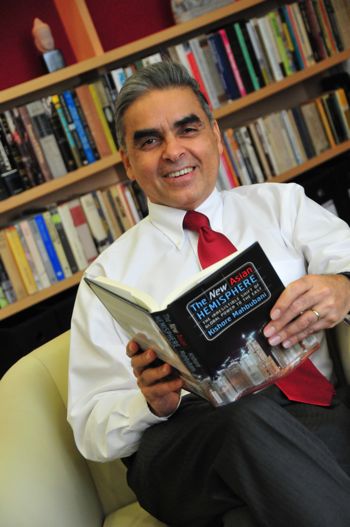

The philosophical West has made enormous contributions to humanity, offering ideals such as the equality of people and the dignity of the individual, while the material West places self-interest above values, regularly choosing leaders who cling to power and wealth. He takes the rules established by the West - on democracy, rule of law and social justice - holding them up like a big mirror and showing the distorted reflection practiced by the US and Europe. Overall, the book’s tone is more professorial than diplomatic. The book is a stern message to the West from a man who has mastered its practice Mahbubani, dean and professor with the Lee Kuan Yew School of Public Policy, the National University of Singapore, also had a long diplomatic career that included service as Singapore’s ambassador to the United Nations. With The New Asian Hemisphere: The Irresistible Shift of Global Power to the East, Mahbubani is earnest and blunt, essentially telling the democratic West: We like your rules please play by them. States must work with each other, and we need a world order that enables and facilitates cooperation in our global village.The premise of Kishore Mahbubani’s latest book is simple: If representative democracy is the best known form of governance for nations, then it’s also the best form for the world. In short, human beings now live in a global village. Many of the world's pressing issues, such as COVID-19 and climate change, are global issues and will require global cooperation to deal with. Part Four Globalization, Multilateralism and Cooperation.

While this rise has been peaceful, many in the West have responded with considerable concern over the influence China will have on the world order. The shift in the balance of power to the East has been most pronounced in the rise of China. The twenty-first century will see the return of Asia to the center of the world stage. After 1820 and the rise of the West, however, great Asian civilizations like China and India were dominated and humiliated. From the years 1 to 1820, the largest economies in the world were Asian. The West needs to learn how to act strategically in a world where they are no longer the number 1. The major strategic error that the West is now making is to refuse to accept this reality. The contents cover four parts: Part One The End of the Era of Western Domination. This open access book consists of essays written by Kishore Mahbubani to explore the challenges and dilemmas faced by the West and Asia in an increasingly interdependent world village and intensifying geopolitical competition.


 0 kommentar(er)
0 kommentar(er)
